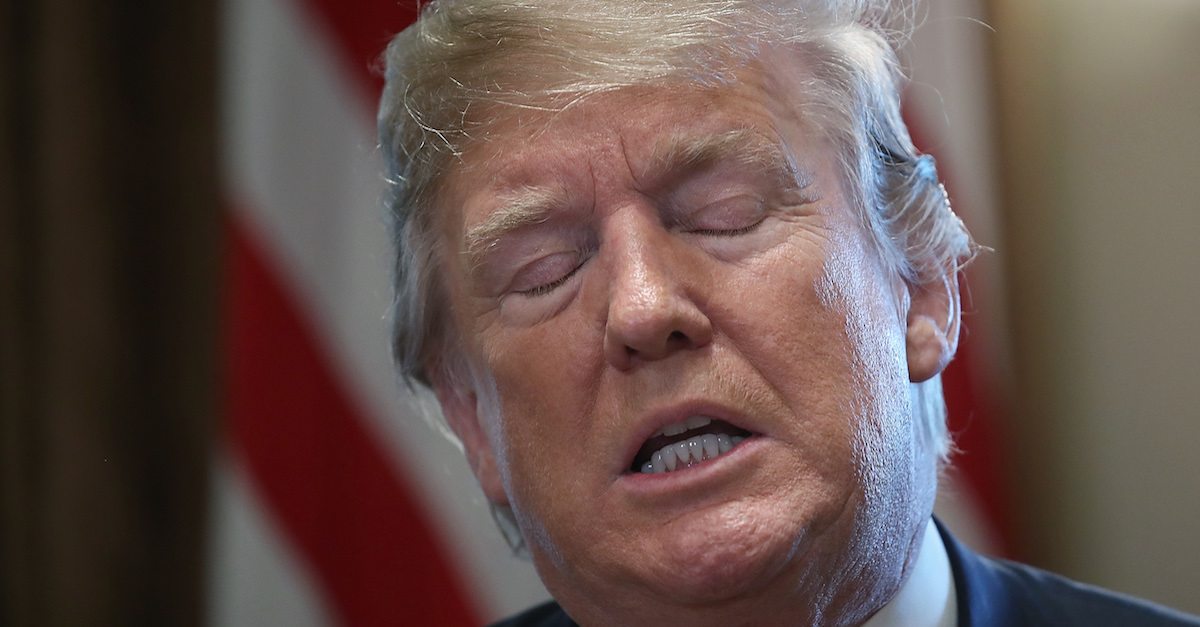
The U.S. House of Representatives, after a day-long debate, voted on Wednesday, December 18, 2019 to impeach President Donald J. Trump for abusing his power and obstructing Congress. The vote was 230-197 for the abuse of power charge, with one voting present. The vote for the obstruction of Congress charge was 229-198, with one voting present.
No Republican representative voted to impeach the president.
Trump joins Andrew Johnson and Bill Clinton as the only three sitting presidents in American history to be impeached by the House. Richard Nixon, infamous in his own right, resigned before he could be impeached over the Watergate scandal.
Johnson was impeached over the fallout from controversial dismissals and appointments to his cabinet without Senate approval–personnel shifts made in an effort to frustrate and slow down the Reconstruction process following the Civil War. The House also alleged improper diversion and use of military funds and that Johnson criticized the U.S. Congress too harshly in three separate speeches. Johnson narrowly escaped removal as the Senate returned a 35-19 vote against him–one vote shy of the two-thirds majority necessary to remove a sitting president.
Clinton was famously impeached by several of the same Republican politicians currently defending Trump. The House returned two charges against Clinton over his subterfuge about a power-imbalanced sexual relationship with then-22-year-old White House intern Monica Lewinsky. Clinton was easily acquitted by the Senate on both charges.
Trump was impeached for efforts to leverage congressionally appropriated military aid and a White House meeting with Ukrainian president Volodymyr Zelensky in exchange for Zelensky publicly announcing investigations into former Vice President Joe Biden, his son Hunter Biden, and the debunked conspiracy theory that Ukraine, not Russia, interfered in the 2016 U.S. presidential election.
While Democratic lawmakers have accused Trump of committing federal crimes in office and “betraying the nation,” Republican lawmakers have staunchly defended the president throughout the process.
The next step will be for the House to send the articles of impeachment to the Senate, where Chief Justice of the U.S. Supreme Court John Roberts will preside over the ensuing trial. A two-thirds vote in the Senate is required to remove Trump from office, an outlook that is extremely unlikely given the public statements already on-record from top Senate Republicans like Sen. Lindsey Graham (R-S.C.).
“This thing will come to the Senate and it will die quickly, and I will do everything I can to make it die quickly,” Graham said Saturday of Trump’s impending impeachment trial.
No sitting president has ever been removed from office after being impeached. Senate Majority Leader Mitch McConnell (R-Ky.) has already promised that there’s “no way” Trump will be removed from office.
[Image via Win McNamee/Getty Images]
Have a tip we should know? [email protected]